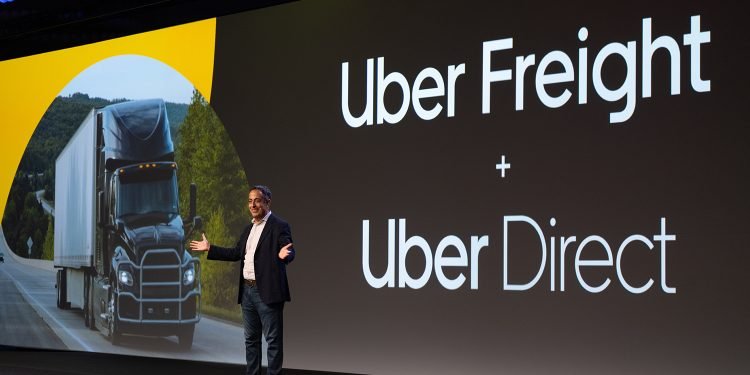By Maria Kalamatas | The Logistic News – World Section
Chicago, USA – May 22, 2025
“This marks a pivotal moment in logistics, where artificial intelligence transitions from a supportive tool to the central orchestrator of supply chain operations.”
— Lior Ron, CEO of Uber Freight
Logistics Enters a Self-Driving Era
In a major industry development, Uber Freight has launched a fully integrated AI logistics network, powered by a proprietary large language model designed specifically for transportation and freight operations. This new infrastructure embeds artificial intelligence into the heart of day-to-day supply chain decisions, pushing the boundaries of what autonomous logistics can achieve.
The platform is engineered to anticipate disruptions, adjust carrier allocations, and recommend routing strategies in real time—all without human intervention. In essence, AI is no longer just an assistant; it is the system’s core logic.
Efficiency Through Prediction, Not Reaction
At the center of this network is a machine learning engine that digests vast streams of data—weather, traffic, fuel prices, capacity trends—and recalibrates logistics plans on the fly. Companies using the platform gain adaptive control over their supply chains, enabling them to predict bottlenecks before they occur and to automate decisions that once required hours of human oversight.
The implications are broad: fewer delays, lower emissions, and significant cost savings across global transport networks.
Democratizing Advanced Logistics
What sets this move apart is its scalability. Traditionally, AI-powered logistics capabilities have been the domain of massive retailers or 3PL giants. Uber Freight’s model, however, is accessible to mid-sized and even small-scale shippers, marking a shift toward widespread AI adoption in freight.
The result? A competitive reshuffle. Smaller logistics players can now access tools that match or exceed those used by multinational corporations, accelerating innovation throughout the industry.
A New Standard in Freight Intelligence
Industry observers see this as a tipping point. As supply chains stretch further across continents, and resilience becomes as valuable as speed, the ability to predict, adapt, and self-correct in real time is no longer a luxury—it’s the baseline.
Uber Freight’s rollout sends a clear message: the future of global logistics won’t just be faster or cheaper—it will be smarter.
The Logistic News – World Section
Covering the systems, technologies, and strategies shaping tomorrow’s supply chain.























